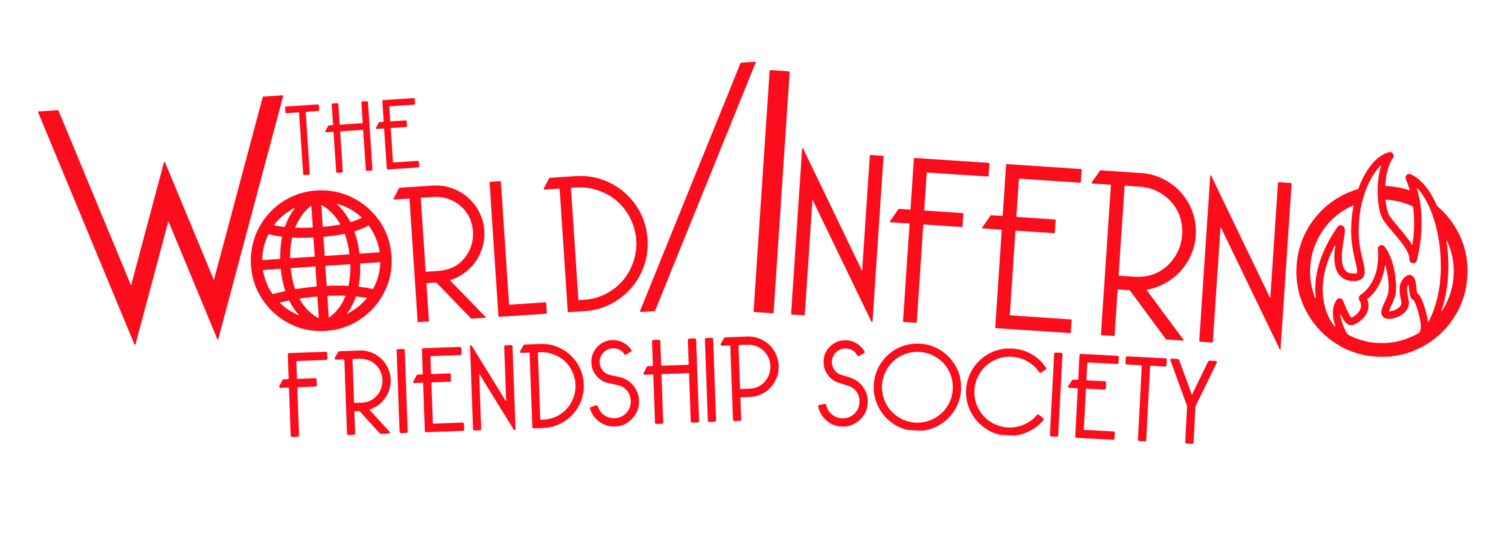I locked my fingers around the frame of the door. I took no voyeuristic pleasure in entering someone else’s space uninvited, not least when it had chased me out once already. That said, the sound had reduced back to a long, sinusoidal lull, like a twenty-foot bow being dragged across a four-story cello. The seams were nearly impossible to discern aurally, but boy, I could feel them in the clasp of my fingers as I leaned into the place, my arms straight behind me. The sound itself was still loud enough that the hairs on my forearms seemed to dance to and fro, inhaled and exhaled in time with the gradual bowing. I was in worse position to make out the full of the sound and so pulled myself back to the threshold, dipping backwards to hear the din of the choir, forwards to soak in the resonance chamber of the foyer, then back to upright, all without ever releasing the molding of the frame. I wanted to enter, but I did not want to lose the choir, or whatever it actually was, and it felt as if the moment I entered, I would be bereft.
A vague and likely fatuous sensation was not all that held me at the door, however. Inside the rather grimy atrium was another keyboard, this one mounted into the frame of an old piano, each key with some strange, unrecognizable symbol carved into it. Outside was the walkway I had watched Jack stroll up, and up which I had finally followed. Inside, I could make out a kitchen table with mugs and plates rattling gently in irregular orbits around an older tape machine. Outside, someone I did not recognize walked by and waved at the house, though not probably at me directly, and I was not about to release a hand to return the salutation. At this frame, though, I felt hands all over my body, neither beckoning nor resisting, more measuring and testing the crooks of my joints and the flats of the tops of my feet, shins, forearms, the scalloping of my ribs and spine. The bowing sound bent gradually, microtonally up and subsequently released, just as gradually, back down, and the hands moved in time, palming and gripping me where I stood. In attempting to record these experiences, I cannot clearly say whether it was dreadful or elegiac, or when dread turned to elegy, or if it did at all. I tried to calm myself, tensing my calf muscles to the point of cramping, twisting my trunk as the fingers rolled over individual ribs and popped into the gaps between them. I became aware of each rounded bone and was startled at the contours as back became front, base rolled up to sternum. The hands were clearly not searching, as there is nothing I could have hidden from them with the amount and intensity of tactility they asserted at the threshold.
I leaned back and listened hard, straining to make out words, assuming there were some to make out, but it was no use. I could squint my eyes to squint my ears, I could perceive each follicle and tiny bone that perceived sound, the synapses that translated the waves into something intelligible, the threshold—always the threshold—for plosives becoming syllables and in turn words, words I knew and needed to know, and I was stymied, defeated by the mysteries of the choral tones, which built to a stacked chord, but no words. I leaned back farther than I ought to have been able, holding the rotting frame by fingertips only, the hands supporting most of my weight as the chord grew in volume and intensity, and though I could not make out words, I began to recognize, or deluded myself into thinking I could recognize, voices of the elders. I heard the parents, a theatrical, operatic wail moving across three octaves, and a low tenor bellow of disjoint Quebecois tongue; a cackle of wheezing percussive laughter and a plaintive effeminate alto, which itself sounded almost bowed, layered into the melody. I heard also the grandparents in the rumble of background sound, the confused cacophony of Konnakol, confused because the grandparents were drowned out by the parents, cacophonous because there were simply too many of them to render anything reasonable from the sonic mire. Dreadful or euphoric, I was in pain as I strained with one final effort to separate the voices, to segment the parts into a score in my mind, to make sense of the codes and ciphers hidden in the voices, but they—suddenly, mercifully—were silenced, extinguished like a prayer candle under a long, metal snuffer, the echo down the street and off of the other houses in the neighborhood playing the part of a wisp of smoke trailing up and away into the wan afternoon sky. My head dropped to the side at the expended energy, I felt as though the ardor of following the voices was all that kept me upright, and two thumbs pressed beneath my shoulder blades, two more at the peaks of my thighs, and I was propelled forward with a force that nearly sent me headfirst through the foyer and into the table within.
The vacuum of the cessation of sound sent one of the mugs onto the linoleum floor, where it had miraculously not broken. As if requiring a reason to be in this strange place, which at this moment held a constant tone which could have as easily been from a very loud, very clean electric guitar as from a modular synthesizer, I picked the mug from the floor, set it back on the table, halfway off in case it was meant to fall all along, and gasped for breath, realizing how shallow my respiration had been for the past minutes. I saw Jack’s unmistakable, inimitable, even in a place like this, gait at the end of the hall, turning from the staircase back to the drawing room.


